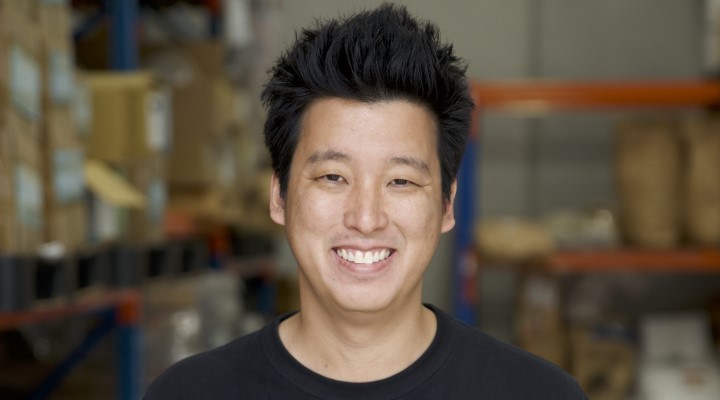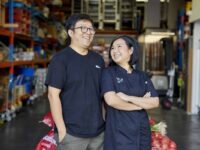This week we talk to Seong-Lee Ang, a serial entrepreneur and co-founder of Buddee, maker of allergen-free food products that are formulated to be enjoyed by anyone, even those who are not suffering from allergies. Together with his business partner Rodney Chieng, Seong-Lee sought to create an all-inclusive allergen-free food spread while retaining a taste that can match that of peanut butter, Nutella, and other spreads children enjoy. Buddee’s early success has served to fuel aspirations for growth for the brand, with new products on the horizon.
SB: Why did you decide to take on allergy-friendly food products with this venture?
SLA: After learning that both my children suffer from anaphylactic food allergies, as they grew closer to school age, it was concerning to discover the extremely limited safe lunchbox options for them in the spreads aisle of the supermarkets. Nearly every spread (other than jam and Vegemite) contained nuts! Along with my business partner Rodney, it became our personal mission to create nut-free (and delicious) alternatives to Nutella and peanut butter that children (not just those with allergies) can safely eat at school, without putting others at risk. With nuts being widely prohibited at schools around the country, Buddee is the solution for all Australian families.
ISB: How does Buddee stand out from other allergy-friendly food products in the market?
SLA: Firstly, the taste. Allergy-friendly food products are notorious for not tasting that great. It’s often the nuts, dairy, wheat, sesame, etc that make products taste so good. Hats off to Rodney who took the challenge of creating something both delicious and allergy-friendly.
Secondly, we make Buddee in our own purpose-built facility that is also free from the top 10 most common food allergens. This is why our labels do not have any “may contain traces of…” warnings.
Finally, although Buddee is free from the most common allergens, it’s not just for people with allergies. It was created for everyone to take to school and work. This is why Buddee can be found in the spreads aisle of Woolies and Coles, not the health food aisle.
ISB: How is your entrepreneurial journey with Buddee different from the other ventures that you’ve helped start?
SLA: If I was to be completely honest, up until this point, business has just been business. It was more about seeing a business opportunity and then building a business around it. There was no real emotional attachment or personal meaning behind that particular product or service. But with Buddee, it’s completely different. It’s very personal, and whenever I’m working on Buddee I’m motivated by my two children and feel so driven and passionate about helping to create a safer school environment for all children at lunchtime around Australia and beyond.
ISB: What was the most unexpected challenge you have faced in this business journey and how did you overcome it?
SLA: The most unexpected challenge we faced was how quickly both Woolworths and Coles both decided to stock Buddee nationally. Obviously, it was always our dream for them to eventually put us on their shelves but it was a bit unexpected that it happened as soon as we launched, because Buddee was a brand that nobody had heard of, and we hadn’t yet sold a single jar. Thankfully we already had all our scale up plans in place, so it has been an extremely fun, crazy and fulfilling journey.
ISB: What is your vision for Buddee for the next couple of years?
SLA: Spreads are just the beginning for Buddee. Even when we were in the early formulation stages of Buddee spreads, Rodney and I were already brainstorming new products that we can create under the Buddee brand. We can’t give too much away, but consumers can rest assured that all future Buddee products will be created in the same vein – school safe, inclusive, healthy and delicious.
ISB: What advice can you give to would-be entrepreneurs who are about to start their own business journeys?
SLA: Ask as many questions as you can from experienced entrepreneurs who are willing to share their wisdom and experiences (both good and bad). But don’t just ask those who have only succeeded in business…also ask those who have failed, learnt and did it better the next time. This will greatly reduce the chances of making unnecessary and costly mistakes. Mistakes and failures in business are healthy and important learning experiences (when they don’t cost too much), but by not being afraid to ask for help or advice can save a lot of pain, time and money. Having the right people around you is invaluable.













